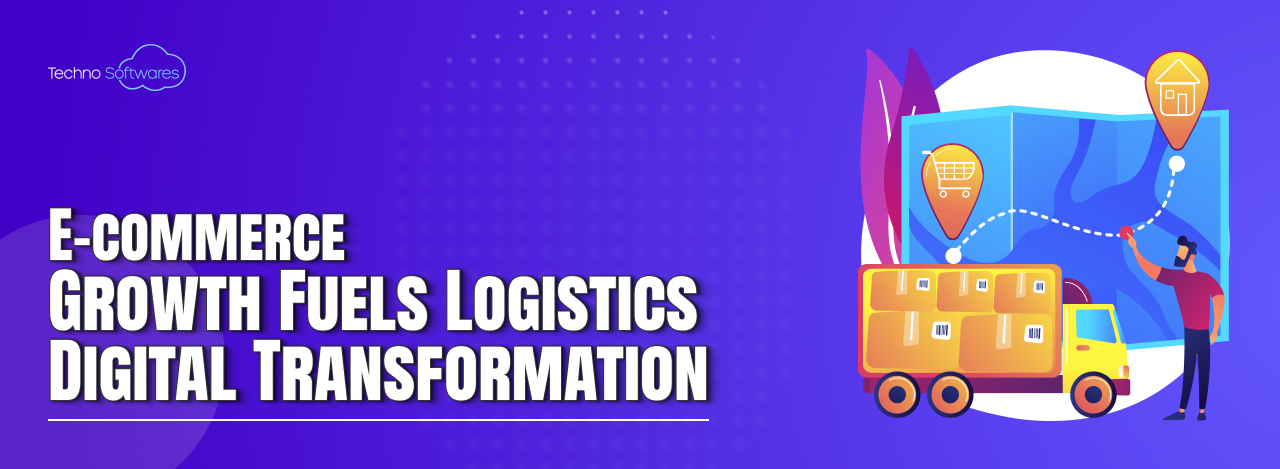Step-by-Step Guide to Airbnb API Integration
As we delve into the world of the Airbnb API, it becomes essential to grasp its purpose and functionality. The Airbnb API serves as a bridge between our applications and the vast ecosystem of Airbnb’s services. By utilizing this API, we can access a wealth of data related to listings, bookings, and user profiles, enabling us to create innovative solutions that enhance the user experience.
The API allows us to interact programmatically with Airbnb’s platform, facilitating tasks such as searching for properties, managing reservations, and retrieving user information. Moreover, understanding the structure and endpoints of the Airbnb API is crucial for effective integration. The API is designed to be RESTful, meaning it follows standard HTTP methods like GET, POST, PUT, and DELETE.
Each endpoint corresponds to specific functionalities, such as retrieving listing details or creating new bookings. By familiarizing ourselves with these endpoints and their parameters, we can harness the full potential of the API, ensuring that our applications are both efficient and user-friendly.
Key Takeaways
- The Airbnb API allows developers to access and integrate Airbnb’s booking and listing data into their own applications.
- Setting up Airbnb API integration involves creating a developer account, generating API keys, and authenticating your application.
- To create an Airbnb developer account, you need to sign up on the Airbnb developer portal and agree to the terms of service.
- Generating API keys involves creating an application on the developer portal and obtaining the necessary credentials to make API requests.
- Authenticating your application with the Airbnb API requires including your API keys in the request headers to verify your identity and access the data.
Setting up your Airbnb API Integration
To embark on our journey of integrating with the Airbnb API, we must first establish a solid foundation. This begins with identifying the specific use cases we want to address through our integration. Whether we aim to build a property management tool or a travel planning application, having a clear vision will guide our development process.
Once we have defined our objectives, we can move on to the technical aspects of setting up the integration. The next step involves selecting the appropriate technology stack for our application. Depending on our team’s expertise and the requirements of our project, we may choose to work with popular programming languages such as Python, JavaScript, or Ruby.
Additionally, we should consider using frameworks that facilitate API interactions, such as Flask for Python or Express for Node.js. By choosing the right tools, we can streamline our development process and ensure that our integration is robust and scalable.
Creating an Airbnb Developer Account

Before we can access the Airbnb API, we need to create a developer account on the Airbnb platform. This account will serve as our gateway to the API and provide us with the necessary credentials to authenticate our requests. The registration process is straightforward; we simply need to visit the Airbnb developer portal and fill out the required information.
This typically includes our name, email address, and a brief description of our intended use for the API. Once our developer account is set up, we gain access to valuable resources that will aid us in our integration journey. The developer portal often contains documentation, sample code, and community forums where we can seek assistance from other developers.
By actively engaging with these resources, we can deepen our understanding of the API and stay updated on any changes or enhancements that Airbnb may implement in the future.
Generating API Keys
With our developer account established, we can now proceed to generate API keys. These keys are essential for authenticating our application and ensuring secure communication with the Airbnb servers. Typically, we will find an option within the developer portal to create new API keys.
During this process, we may be asked to provide details about our application, such as its name and purpose. Once we have generated our API keys, it is crucial to store them securely. These keys act as sensitive credentials that grant access to our application’s functionalities.
We should avoid hardcoding them directly into our source code; instead, utilizing environment variables or secure vaults can help protect this information from unauthorized access. By taking these precautions, we can safeguard our integration against potential security threats.
Authenticating your Application
Authentication is a critical step in ensuring that our application can communicate effectively with the Airbnb API. The process typically involves using OAuth 2.0, a widely adopted authorization framework that allows us to obtain access tokens for making API requests on behalf of users. To initiate this process, we must redirect users to Airbnb’s authorization page, where they can grant permission for our application to access their data.
Once users authorize our application, we receive an authorization code that we can exchange for an access token. This token serves as proof of authentication and must be included in the headers of our API requests. It is important to note that access tokens have expiration times; therefore, we should implement a mechanism to refresh them when necessary.
By ensuring proper authentication practices, we can maintain a secure connection between our application and the Airbnb platform.
Making API Requests

Making API Requests to Airbnb’s Services
With authentication in place, we can now proceed to make API requests to interact with Airbnb’s services. Each request will be directed towards specific endpoints based on the functionalities we wish to utilize. For instance, if we want to retrieve a list of available properties in a particular location, we would send a GET request to the relevant endpoint while including any necessary query parameters.
Constructing API Requests
When constructing our requests, it is essential to adhere to the guidelines outlined in the API documentation. This includes specifying headers such as Content-Type and Authorization, as well as formatting request bodies correctly for POST or PUT requests.
Ensuring Smooth Request Processing
By following these conventions, we can ensure that our requests are processed smoothly by the Airbnb servers and that we receive accurate responses in return. This is crucial for a seamless integration with Airbnb’s services and for achieving our desired outcomes.
Best Practices for API Requests
To achieve optimal results, it is recommended to carefully review the API documentation and follow the guidelines provided. This will help prevent errors and ensure that our API requests are successful.
Handling API Responses
Once we have made our API requests, we must be prepared to handle the responses returned by Airbnb’s servers. Typically, these responses will be formatted in JSON, making it easy for us to parse and extract relevant information. We should implement error handling mechanisms to manage any potential issues that may arise during this process—such as network errors or invalid requests—ensuring that our application remains resilient.
In addition to handling errors gracefully, we should also consider how to present the data received from the API in a user-friendly manner. This may involve transforming raw data into more digestible formats or integrating it seamlessly into our application’s user interface. By prioritizing both functionality and user experience, we can create an application that not only meets technical requirements but also delights users.
Troubleshooting and Testing your Integration
As with any software development project, troubleshooting and testing are vital components of ensuring a successful integration with the Airbnb API. We should establish a comprehensive testing strategy that includes unit tests for individual components as well as integration tests that assess how well our application interacts with the API as a whole. This proactive approach allows us to identify potential issues early in the development process.
When encountering problems during testing or implementation, it is beneficial to refer back to the documentation provided by Airbnb. Often, common issues are addressed within these resources, along with suggested solutions or best practices. Additionally, engaging with developer communities or forums can provide valuable insights from others who have faced similar challenges.
By fostering a culture of collaboration and continuous learning within our team, we can enhance our integration efforts and ultimately deliver a high-quality product. In conclusion, integrating with the Airbnb API opens up a world of possibilities for developers looking to create innovative applications within the travel and hospitality sector. By understanding the intricacies of the API and following best practices throughout each stage of integration—from setting up accounts and generating keys to making requests and handling responses—we can build robust solutions that enhance user experiences while leveraging Airbnb’s extensive platform capabilities.
Through diligent testing and troubleshooting efforts, we can ensure that our applications not only function effectively but also provide real value to users navigating their travel journeys.
If you are looking for more information on software testing, you may want to check out this article on Alpha Beta Testing for Better Software Quality. It provides valuable insights into the importance of thorough testing processes in software development. Additionally, if you are interested in e-commerce development, you can read about the Top 10 WooCommerce Development Companies in Malaysia to find the best service providers for your online store. And for those looking to streamline their asset management processes, the article on Enterprise Asset Management System offers a comprehensive guide on implementing efficient asset management solutions. Don’t hesitate to reach out to Techno Softwares for expert assistance with Airbnb API integration or any other software development needs.
FAQs
What is Airbnb API Integration?
Airbnb API Integration refers to the process of connecting a third-party application or system with Airbnb’s platform using their API (Application Programming Interface). This allows for seamless communication and data exchange between the two systems.
What are the benefits of Airbnb API Integration?
Some of the benefits of Airbnb API Integration include streamlining the booking process, automating property management tasks, accessing real-time data, and enhancing the overall user experience for hosts and guests.
How can Techno Softwares help with Airbnb API Integration?
Techno Softwares is a software development company that specializes in API integration services. They can help businesses integrate their systems with Airbnb’s API, allowing for a more efficient and seamless operation.
What are the steps involved in Airbnb API Integration?
The steps involved in Airbnb API Integration include obtaining API credentials from Airbnb, understanding the API documentation, developing the integration code, testing the integration, and deploying the integration to production.
What are some common challenges with Airbnb API Integration?
Some common challenges with Airbnb API Integration include understanding and navigating the API documentation, handling authentication and authorization, managing data synchronization, and ensuring compliance with Airbnb’s terms and conditions.
How long does it take to complete Airbnb API Integration?
The time it takes to complete Airbnb API Integration can vary depending on the complexity of the integration, the availability of resources, and the experience of the development team. It is best to consult with a professional service provider like Techno Softwares for a more accurate timeline.





